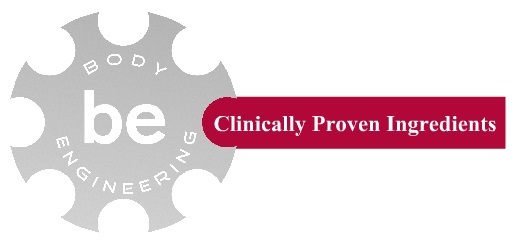African Mango Extract:
Ngondi JL, E. B. (2009, March 2). NCBI. Retrieved from PubMed.gov: http://www.ncbi.nlm.nih.gov/pubmed/19254366
BACKGROUND:
A recent in vitro study indicates that IGOB131, a novel seed extract of the traditional West African food plant Irvingia gabonensis, favorably impacts adipogenesis through a variety of critical metabolic pathways including PPAR gamma, leptin, adiponectin, and glycerol-3 phosphate dehydrogenase. This study was therefore aimed at evaluating the effects of IGOB131, an extract of Irvingia gabonensis, on body weight and associated metabolic parameters in overweight human volunteers.
The study participants comprised of 102 healthy, overweight and/or obese volunteers (defined as BMI > 25 kg/m2) randomly divided into two groups. The groups received on a daily basis, either 150 mg of IGOB131 or matching placebo in a double blinded fashion, 30-60 minutes before lunch and dinner. At baseline, 4, 8 and 10 weeks of the study, subjects were evaluated for changes in anthropometrics and metabolic parameters to include fasting lipids, blood glucose, C-reactive protein, adiponectin, and leptin.
Results: Significant improvements in body weight, body fat, and waist circumference as well as plasma total cholesterol, LDL cholesterol, blood glucose, C-reactive protein, adiponectin and leptin levels were observed in the IGOB131 group compared with the placebo group.
Green Tea Extract:
Clinical Study: American Journal of clinical nutrition: December 1999 vol. 70 no. 6 1040-1045: Authors: Abdul G Dulloo, C. D. (1999, December). Amercian Journel clinical nutrition. Retrieved from ajcn: http://ajcn.nutrition.org/content/70/6/1040.full
Results: Relative to placebo, treatment with the green tea extract resulted in a significant increase in 24-h EE (4%; P < 0.01) and a significant decrease in 24-h RQ (from 0.88 to 0.85; P < 0.001) without any change in urinary nitrogen. Twenty-four–hour urinary norepinephrine excretion was higher during treatment with the green tea extract than with the placebo (40%, P < 0.05). Treatment with caffeine in amounts equivalent to those found in the green tea extract had no effect on EE and RQ nor on urinary nitrogen or catecholamines.
Raspberry Ketone:
KS, P. (2010). Raspberry ketone increases both lipolysis and fatty acid oxidation in 3T3-L1 adipocytes. Retrieved from EuropePubMed Central: http://europepmc.org/abstract/MED/20425690
Raspberry ketone (RK) is a natural phenolic compound of the red raspberry. The dietary administration of RK to male mice has been reported to prevent high-fat diet-induced elevation in body weight and to increase lipolysis in white adipocytes. To elucidate a possible mechanism for the antiobesity action of RK, its effects on the expression and the secretion of adiponectin, lipolysis, and fatty acid oxidation in 3T3-L1 were investigated. Treatment with 10µM of RK increased lipolysis significantly in differentiated 3T3-L1 cells. An immunoassay showed that RK increased both the expression and the secretion of adiponectin, an adipocytokine mainly expressed and secreted by adipose tissue. In addition, treatment with 10µM of RK increased the fatty acid oxidation and suppressed lipid accumulation in 3T3-L1 adipocytes. These findings suggest that RK holds great promise as an herbal medicine since its biological activities alter the lipid metabolism in 3T3-L1 adipocytes.
Clinical Studies:
© 2013 Body Engineering NZ New Zealand All Rights Reserved






